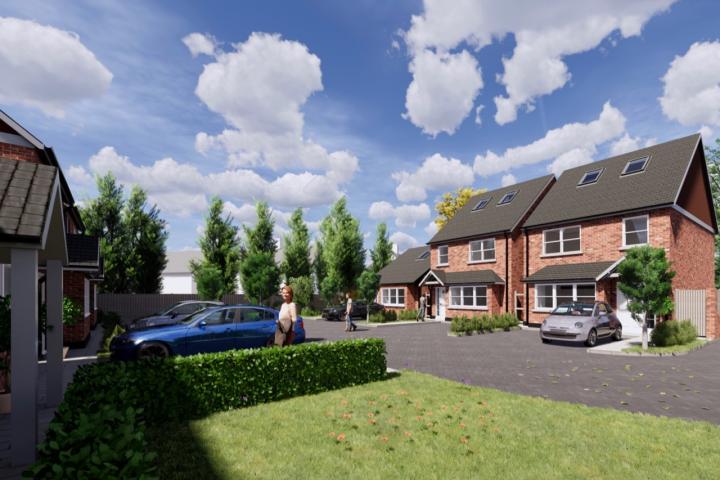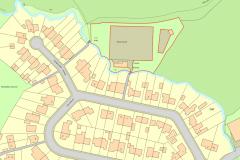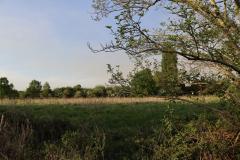
Planning permission for six new houses on land off Heyes Lane previously gifted to the RSPCA has been refused again.
The application was referred to Cheshire East Council Northern Planning Committee by Alderley Edge Ward Councillor, Craig Browne.
In addition to 4 four-bedroomed houses over 3 floors, 1 three bed Dorma-bungalow and 1 two bed Dorma-bungalow, the proposal called for a stretch of Heyes Lane to be moved to create a larger junction to access the site. This would result in the loss of the green verges in that area with the only remaining grass verge being the one outside the Emmerson offices.
The Parish Council, represented by Cllr Myles Garbett and residents, represented by Cllr Sarah Greenwood, argued that there was overwhelming objection to the development based on the following grounds:
- The development would impact negatively on the amenity of neighbours, particularly Oakfield Close which is at a much lower level resulting in a loss of privacy and light and 81 Heyes Lane where Plot 6 would be built right on its party line
- Inadequate parking provision on site
- Removal of almost all the grass verges in the area to accommodate access, which are not only protected in the emerging Neighbourhood Plan, but which form part of important green infrastructure in the area
- Moving the highway to create a false bend, along a stretch of road dated back to the 1800's with a historical straight road, block terrace house build character
- Reducing pavement width and the separation between pedestrians and motorists which is at odds with the government active travel policy.
- Unsuitability of the unadopted access road, known as Buck Horn Street, for the shared use by additional cars, pedestrians and cyclists
- Concern that a mature A1 graded oak tree, at the entrance of Buck Horn St, is under threat from this work.
- The planned houses would suffer from a lack of amenity space and inadequate provision was made for refuse storage
They argued that despite moving the highway, destroying the verges and changing the historic character of the road, visibility at the entrance would not be improved as there is on road parking on that side of the carriageway all day.
The committee were divided over the development with Cllr Browne having the casting vote which resulted in planning permission being refused on the grounds that it failed to meet standards of access, did not enhance the character of the area and constituted over-development on the plot.
Cllr Browne commented, "Following a two-hour discussion by members, the application was proposed for refusal with four votes in favour, four against and four abstentions, which meant that the decision came down to a casting vote. As Chair, the casting vote is not something that I use lightly; however, on this occasion I felt that on balance the application should be refused. I also had concerns that the council's parking policies, which for four-bedroom dwellings require three spaces to be provided within the curtilage of the site, were not being adhered to."







Comments
Here's what readers have had to say so far. Why not add your thoughts below.
RSPCA you should be compensating the people you scammed. The relatives of the man who left you the land and the people who bought it in good faith. You are a disgrace to charities. Not that you care so long as you have the cash in your coffers.
Emerson will be back with a revised plan before long.
In the meantime common sense has again prevailed.
Well done to Craig, decision making in the interest of local politics but at the expense of the tax payer.
Common sense prevails!
Brian trafford
There are many who oppose, they are listened to, the planning process agrees - and that should be that, except we have an appeal process that seems to be part of our democracy [fair enough] that can go on forever. I believe there are times when parties [sometimes our council] give in because they cannot justify the cost of fighting a further appeal. All this means that the rich guys win in the end and justify changing the nature of the place where we live on the basis that it is providing jobs and helping the local economy when all they are doing is rising up the list of the richest persons in the UK - until they die and then no longer appear on the list! Rich people please take note - how are we going to remember you after you have gone and not taken ANY of your riches with you?
Why would a group of four committee members go to the meeting, discuss the application and then sit on the sidelines by abstaining to vote?
I wonder if the closeness of the rejection and the use of a casting vote to decline the application will influence the outcome of any future appeal against the decision ?